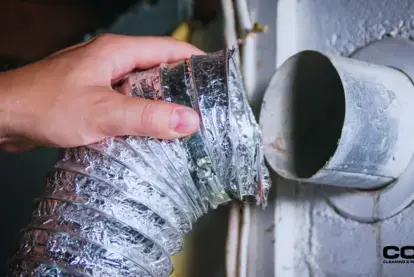Simple Tips for Safely Cleaning Natural Stone Surfaces

Contact COIT for a professional cleaning!
Natural stone adds elegance and value to your home or business. From granite countertops to slate patios, each stone type brings its own charm—but also its own cleaning needs. In this guide, we’ll walk you through how to clean stone safely and effectively, answer your most pressing questions, and help you avoid common mistakes that can lead to damage.
Know Your Stone
Not all stone is created equal. Here’s a quick guide to common types of natural stone and what makes them unique:
Stone Type | Traits | Watch Out For |
Marble | Soft, porous, elegant | Easily etched by acid (vinegar, lemon) |
Granite | Durable, dense, popular for countertops | Can still scratch, may harbor bacteria if unsealed |
Limestone | Warm, natural tones | Very porous, stains easily |
Slate | Textured, rugged | Can flake or chip over time |
Travertine | Earthy, matte finish | Pitted surface traps dirt |
Soapstone | Smooth, dark | Softer, scratches more easily |
What Is the Best Thing to Clean Stone With?
The safest way to clean stone is with a pH-neutral cleaner made specifically for natural stone. Here’s what you should keep in mind:
- Use: Stone-safe cleaner (e.g., Granite Gold, StoneTech), warm water, microfiber cloth
- Avoid: Vinegar, lemon juice, bleach, ammonia, harsh detergents
- Bonus: Use a soft-bristle brush for textured stone or grout
How to Clean Stone Surfaces Indoors
1. Start with Dust or Dry Debris
Wipe surfaces with a dry microfiber cloth or vacuum using a brush attachment to remove dust and grit.
2. Spray Gently
Use a pH-neutral stone cleaner or mix warm water with a drop of mild dish soap. Spray lightly on the surface.
3. Wipe and Blot
Use a clean cloth to wipe the surface. Then blot with a dry towel to prevent water spots.
4. Rinse and Repeat
If needed, rinse with plain water to remove any soapy residue.
5. Dry Immediately
Leaving water behind can cause limescale or staining, especially near faucets or plant pots.
How to Clean Exterior Stone
Outdoor stone surfaces like patios, walkways, and retaining walls need a different approach:
- Sweep First Remove loose dirt, leaves, and gravel.
- Use a Hose or Low-Pressure Washer Avoid power washers on softer stones like limestone or travertine.
- Scrub with Stone-Safe Soap Mix warm water and stone soap. Use a long-handled brush to scrub large areas.
- Rinse and Let Dry Ensure proper drainage to avoid moss or mildew buildup.
For tough mildew or black algae, use a cleaner labeled safe for exterior stone.
How to Restore Shine to Stone Surfaces
If your stone has dulled:
- Clean the surface thoroughly with stone-safe cleaner.
- Polish using a stone polish (test on a small area first).
- Seal the surface to lock in shine.
- Dust regularly to prevent grime buildup.
- Call COIT if your stone has scratches, etching, or deep stains.
Remember, each type of natural stone – whether it's granite, marble, or slate – has its own care guidelines. Always check the stone's specific care instructions and when in doubt, consult an expert.
Can you use vinegar to clean natural stone?
Using vinegar to clean natural stone is not recommended. Natural stone surfaces, such as granite, marble, and limestone, are sensitive to acidic substances. Vinegar, being acidic, can etch the surface of the stone, leading to dullness and potential damage.
Over time, the use of vinegar can also degrade the protective sealants applied to the stone, making it more susceptible to staining and other forms of damage. For optimal care and longevity of natural stone surfaces, it's best to use pH-balanced, stone-specific cleaners that are designed to safely and effectively clean without causing harm.
Can you use baking soda to clean natural stone?
While baking soda is a popular cleaning agent for many surfaces, it's not advisable to use it on natural stone. Baking soda is alkaline, and when used on natural stone surfaces like granite, marble, or limestone, it can disrupt the stone's natural pH balance.
This disruption can lead to discoloration, dullness, and even weaken the protective sealants of the stone. Over time, this can make the stone more vulnerable to staining and other damages.
For maintaining the beauty and integrity of natural stone, it's essential to opt for cleaners specifically formulated for stone care, ensuring both effective cleaning and preservation of the stone's natural characteristics.
When to Use Professional Stone Cleaning Services
Stone is durable, but it’s not indestructible. A little regular care goes a long way in preserving its natural beauty. Whether it’s your bathroom floor or backyard patio, treat your stone with care and get professional help when you need it.
Need help? Call the PROs at COIT for expert stone cleaning that brings your surfaces back to life.
Our natural stone cleaning professionals use lab-developed and field-tested solutions that cut through tough dirt and grease while also being safe to use on your stone surfaces. Along with deep cleaning and sanitizing, our trained technicians carefully hone the stone’s surface to remove scratches and etches, and restore stone to its original shine with state-of-the-art equipment.
To protect against future staining, COIT techs finish by sealing and buffing natural stone.
The time and care you put into your natural stone surfaces today will ensure they continue to add beauty and functionality to your home or business well into the future.



